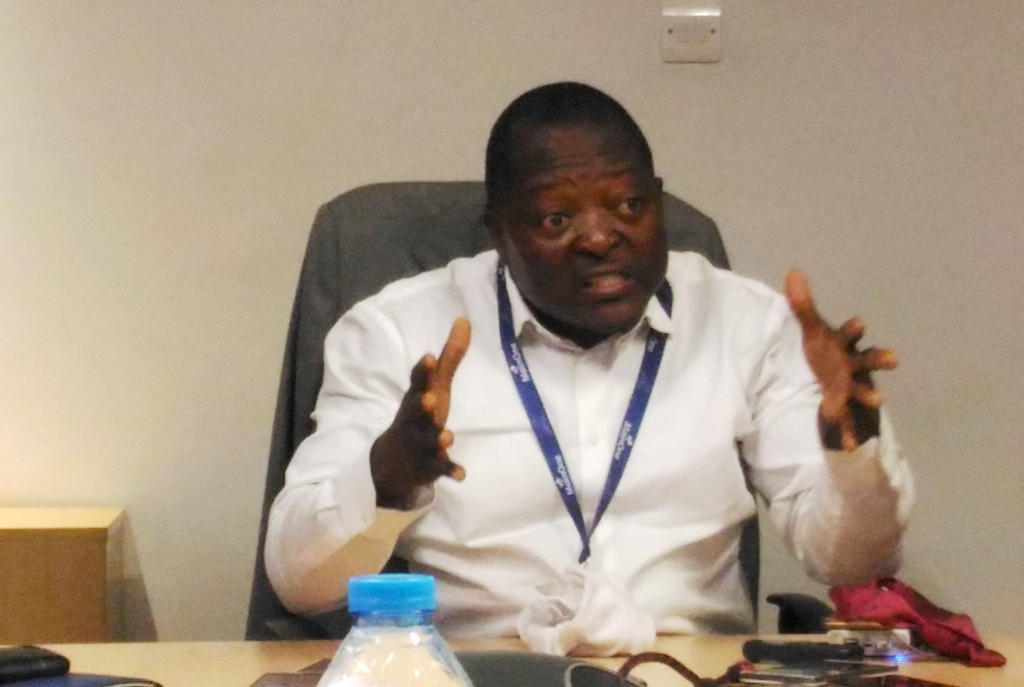The Director General and Chief Executive of the National Information Technology Development Agency (NITDA), Kashifu Inuwa Abdullahi has opened up on the activities on his agency, revealing that it had jump-started Nigeria’s digital economy initiatives even before the Federal Government adopted it.
Explaining more during a recent interview, he said “You may wish to know that even prior to the re-designation of the Federal Ministry of Communications, to include Digital Economy, NITDA has achieved a lot in that regard, through the implementation of a roadmap for the development of the Nigerian IT sector which consists of 7 pillars that are in alignment with the 8 pillars of the Digital Economy Policy & Strategy and the Nigeria IT Policy. For instance, in promoting a digital Nigeria, NITDA from August 2019 to date has launched and is implementing the following regulatory instruments:
- Nigeria e-Government Interoperability Framework (Ne-GIF);
- Nigeria Cloud Computing Policy (NCCP);
- Nigeria ICT Innovation and Entrepreneurship Vision (NIIEV);
- Framework and Guidelines for ICT adoption in Tertiary Institutions;
- Guidelines for Nigeria Content Development ICT as amended; and
- Data Protection Implementation Framework.
Furthermore, we have different IT project interventions that we have carried out across the country in the last 1 year – 80 Digital Capacity Training Centres (DCTCs) with E-Learning facilities, 6 IT Hubs, 6 IT Community Centres, 4 IT Innovation & Incubation Parks, and 3 IT Capacity Training Centres – all with the aim of bridging the digital divide and providing access to the unserved and underserved population.
On what NITDA putting in place to create a conducive environment and support for the Startup Ecosystem, considering the fact that Nigeria is among the top three countries in Africa attracting the largest investments from Venture Capitalists among its flourishing Technology Startups and Hubs, the DG averred that “Nigeria is indeed among the top three countries in Africa, attracting the largest investment from Venture Capitalists for its flourishing Technology Start-ups and Hubs. Interestingly, Nigeria occupied the first position with a total investment of US $747 Million, followed by Kenya with a total investment of US $564 Million and Egypt that attracted a total investment of US $211 Million.In an effort to consolidate these efforts, we have a series of initiatives aimed at providing a conducive environment and support for the Start-up Ecosystem. These include:
- The NITDA Technology Innovation and Entrepreneurship Support Scheme, targeting startups hub owners and youth with talent and building their skills in high-demand skills;
- Policies such as Tax Incentives for startups, incentives for investors and access to market for innovation adoption;
- Establishment of Innovation and Research Fund to further catalyze the growth of startups;
- Development of an Innovation Portal to monitor the activities of the ecosystem;
- FinTech software, which is already exported;
- The innovation fund established by Government will reduce risk and attract FDI; and
- Establishment of the Tech4COVID19 Initiative to measure the impact of COVID-19 on the tech ecosystem and proffer solutions especially for startups. The committee has come up with a Strategic Plan to ensure we retain about 100,000 ICT Jobs and create an additional 30,000 in the Post COVID-19 Era. We have since initiated the implementation of these recommendations.
On his expectations in terms of Nigeria exporting software and attracting foreign exchange on the long term, NITDA boss made it clear that “Nigeria has come a long way from being a net importer of software into a significant hub for the development of talent for software development in Africa. This is evident from the value of investments that come into Nigeria’s startup ecosystem due to the successes of mostly software-powered applications developed by incredibly smart Nigerians.
“This can be seen in the growth and capacities harnessed in the country’s technology hubs, mostly around Lagos and Abuja. Also, there are numerous software houses churning out software to support banking, commerce and government processes in Nigeria. This is a testament to the ingenuity of Nigerians developing software to almost sufficiently meet local needs. However, we must strive to become net exporters of software by developing our model to produce more software engineers and find suitable markets for these talents.
“One way is to prepare to take advantage of the Africa Continental Free Trade Area (AfCFTA), which provides the opportunities for Africa to improve inter-Africa trade generally and trade in services particularly. Nigerian Software will benefit immensely from an improved atmosphere in trade-in services. This is important, considering that we already have all the ingredients needed to succeed. There is also the need to continue to incentivize software developers through lower taxes, subsidized development of talent and to create a pipeline of jobs that can be offered locally.
“This will lead to the development of proprietary solutions that can be standardized and sold as services to other countries in Africa or the rest of the world for significant foreign exchange. Our initiative – the Technology Innovation and Entrepreneurship Support Scheme is one of the initiatives we have towards talent development. Furthermore, we are in discussion with Microsoft Corporation on the Global Skilling Initiative (GSI). It is an initiative aimed at helping 25 million people worldwide who have lost their jobs due to the COVID-19 Pandemic to re-skill in in-demand technical and tech-enabled jobs in the digital economy.









